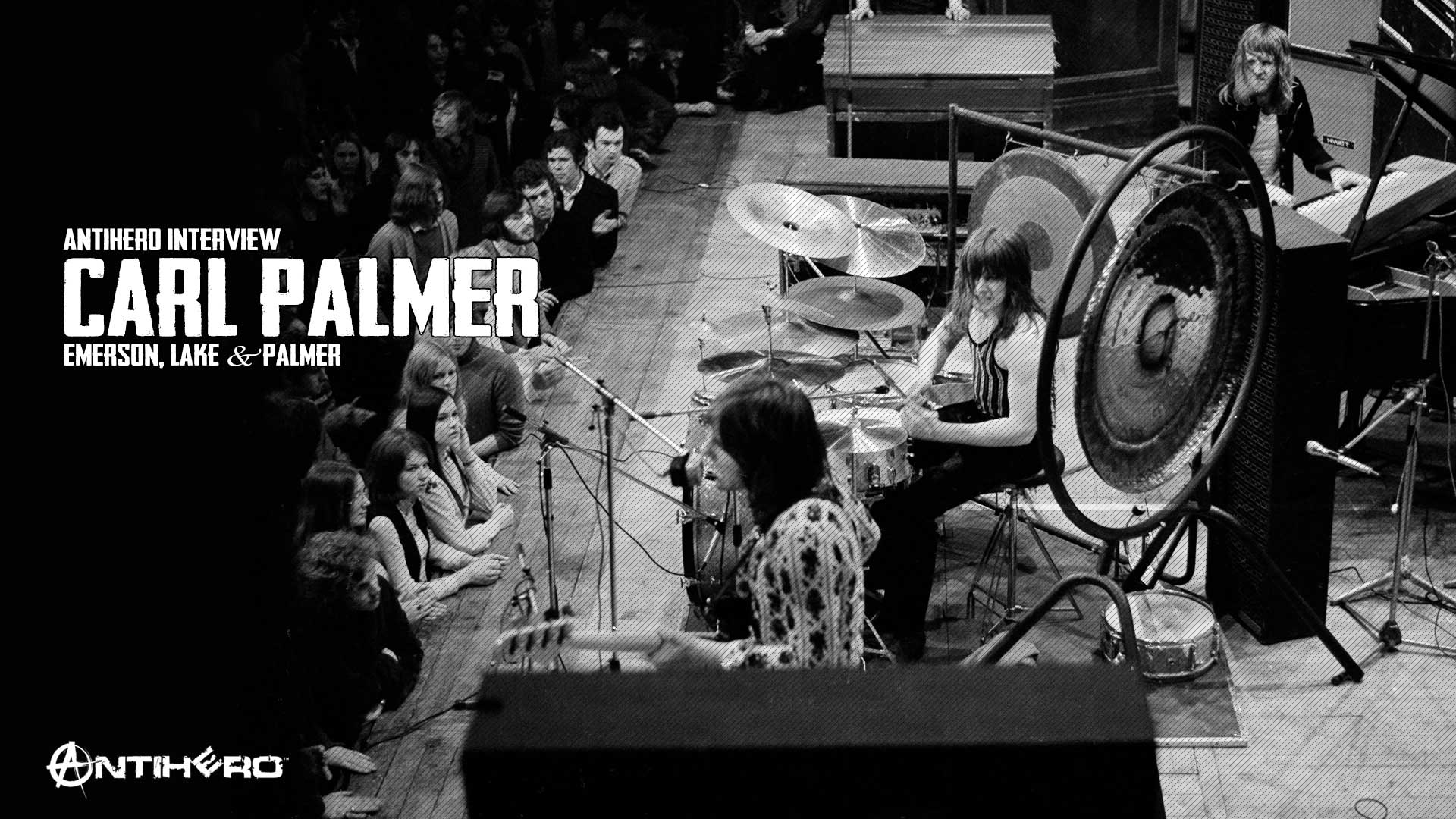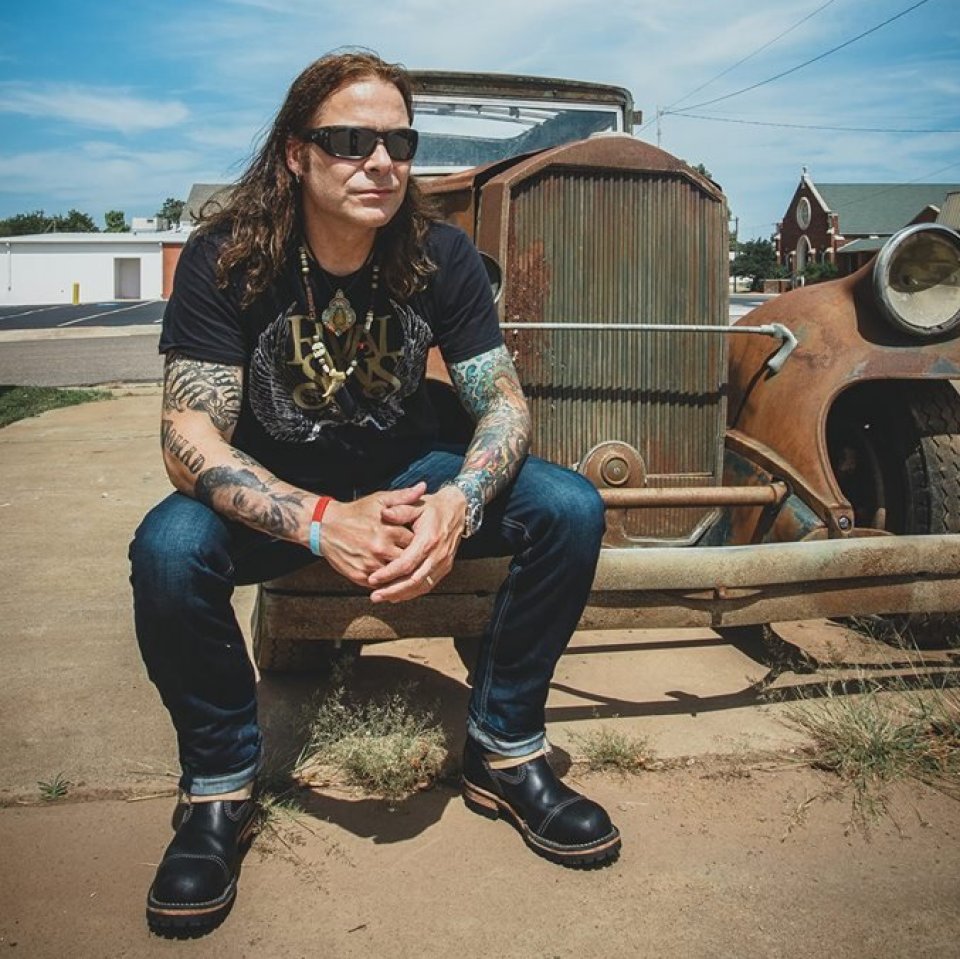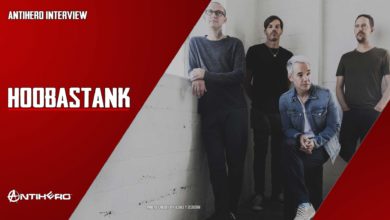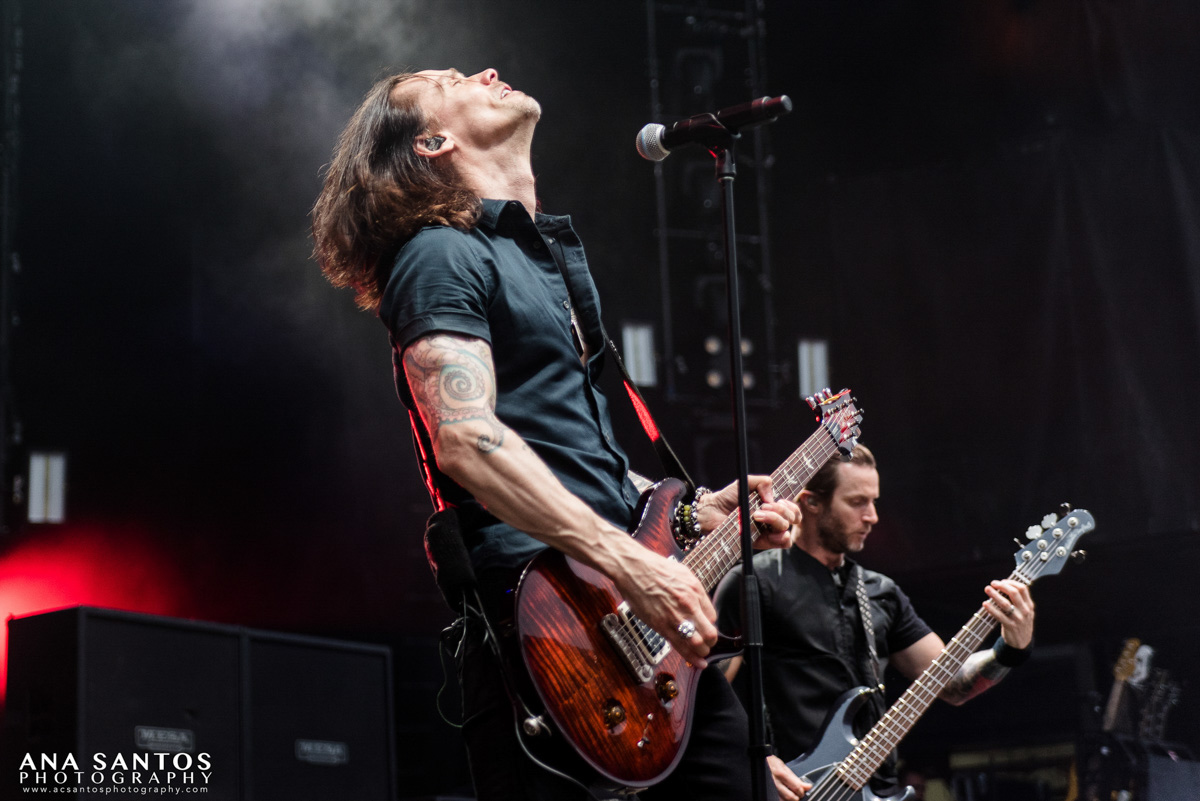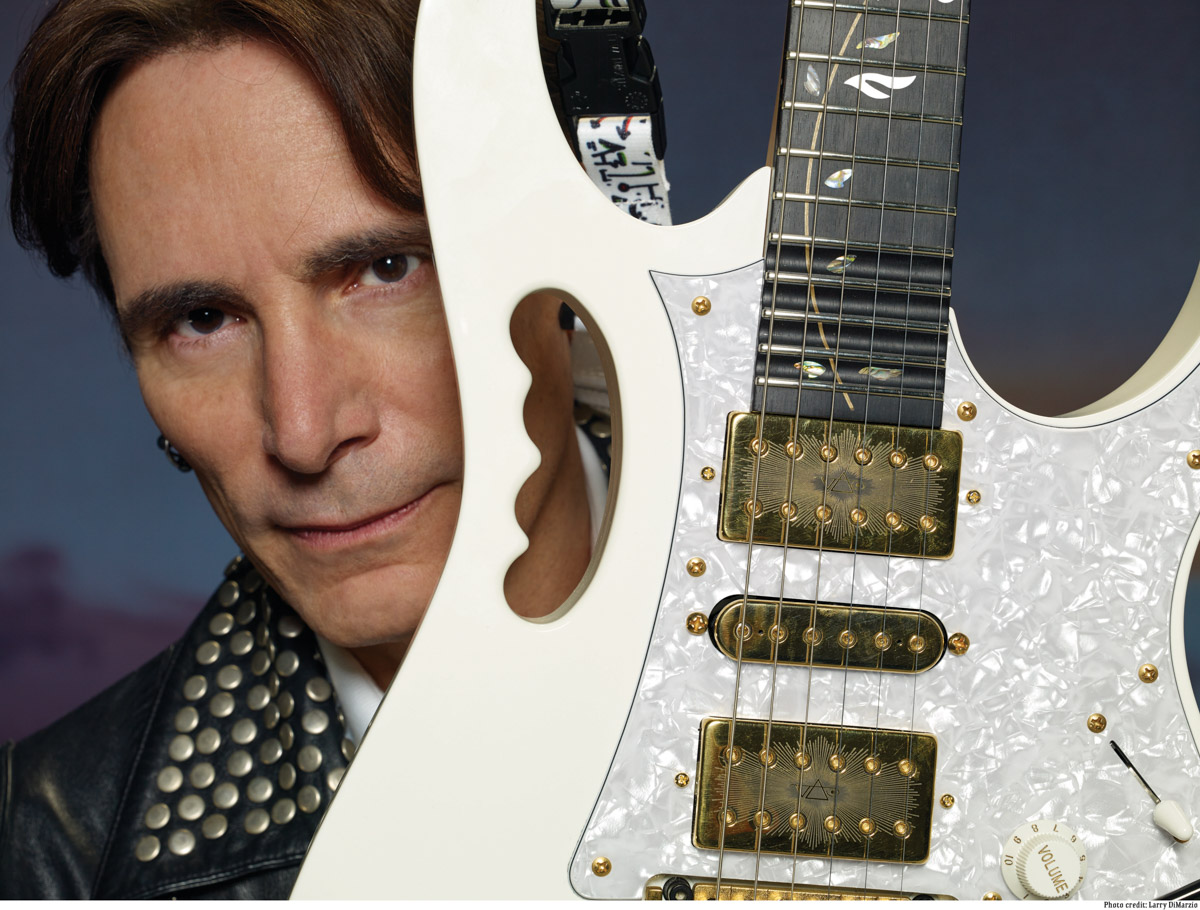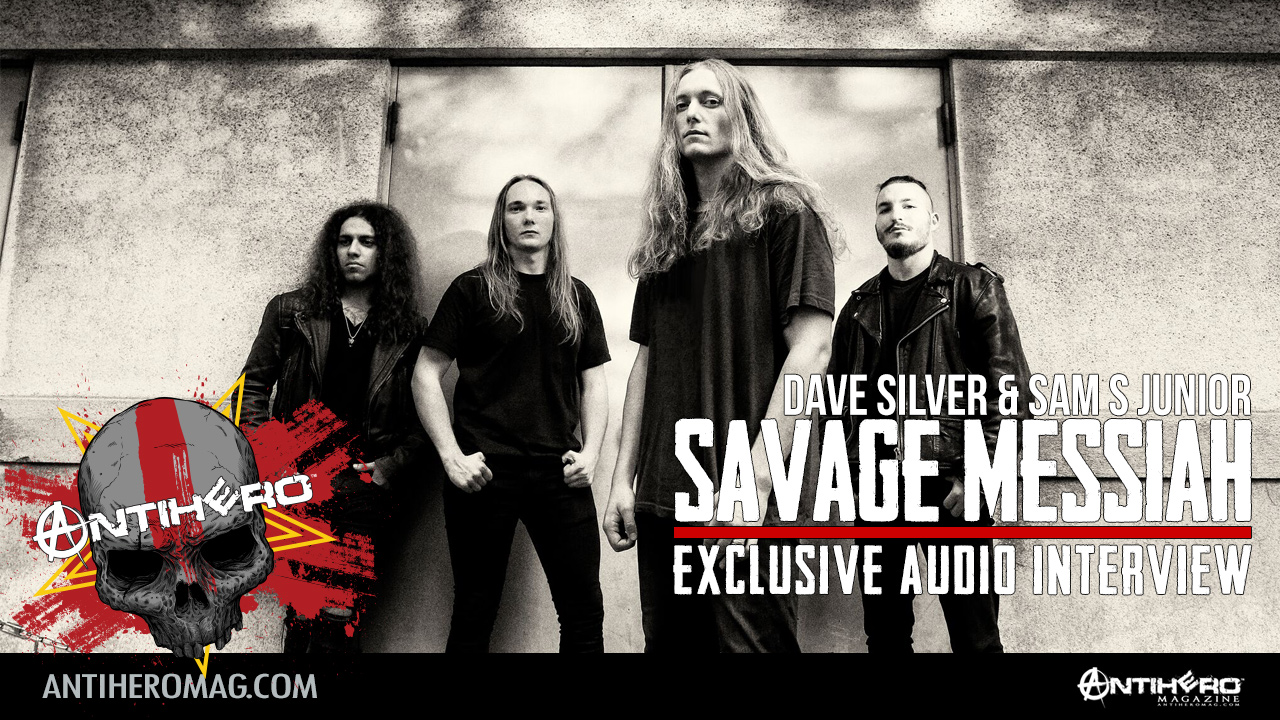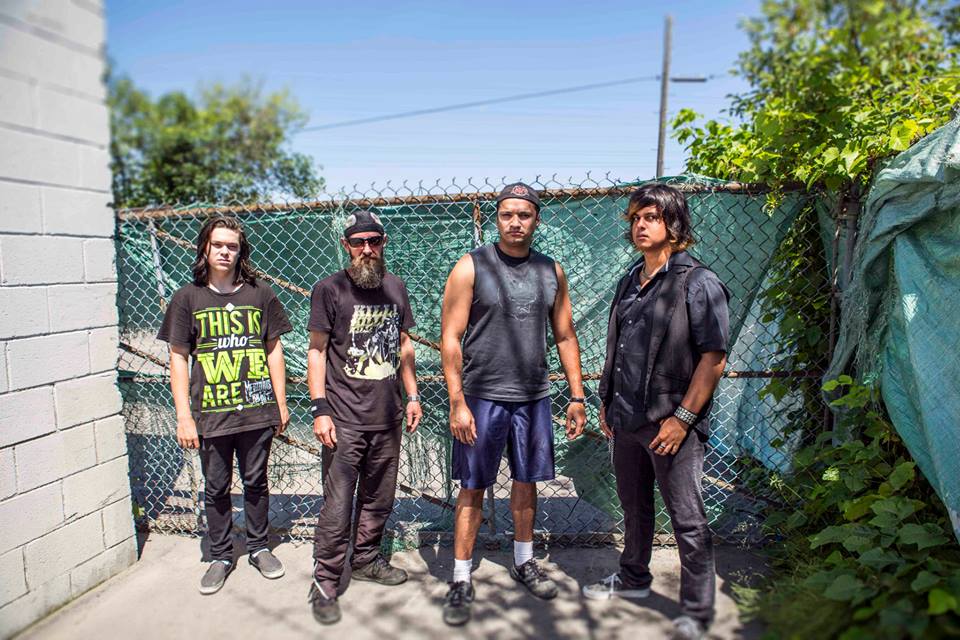‘Out Of This World: Live (1970-1997)’, is a new 10LP and 7CD Deluxe Box Set released by BMG on 29th October 2021 as part of Emerson, Lake & Palmer’s 50th Anniversary celebrations.
‘Out Of This World Live (1970-1997)’ pulls together five of the biggest and most important shows ELP played across their 50 illustrious years
Album pre-order link: https://ELP.lnk.to/OOTWPR
I was extremely fortunate to be able to have the opportunity to chat to legendary drummer Carl Palmer about ELP, in addition to Asia and his long musical career.
ANTIHERO: First, I just wondered how you were. Obviously, the last two years have been a bit surreal in terms of you haven’t been able to get out and play live.
Carl Palmer: That’s true, there are not many people who have gone out and played live, but there are a lot of people playing live now. So, I will be going out at the end of the month, and I will be playing roughly 16 concerts in America over a 19-day period, so that’ll take me up to sort of sometime in the middle of November. And that’ll be the first concerts we’ve played in a couple of years, yeah.
ANTIHERO: Yeah. How have you been spending the last few years? Obviously, you’ve got maybe a lot of extra time on your hands. What have you been up to?
Carl Palmer: Well, it’s not really been extra time because if you’ve been looking at social media, I was the chief editor on the ELP book, which was a rather large book, the size of a telephone directory, with an unbelievable number of pictures and lots of articles and interviews, and the story in the book is being told by the band. So, I had to edit most of that and, obviously involving the Lake family and the Emerson family, I managed to get that sort of done. And then I worked with BMG, who have got the ELP catalogue, and we produced a vinyl set of albums, a CD set of albums, and another box set, which incorporated albums and some live ones, some recordings that hadn’t been released and a book and a pin. So, we managed to get all that product together and it’s all coming up ready to be made available.
On top of that, I did three pieces of artwork so far this year for the first album, which was the anniversary in ’71… ’21. I did some artwork to celebrate the anniversary of the first album and of the second album, which was Tarkus. And I’ve just finished Pictures at an Exhibition. And these are all on my website, www.carlpalmerart.com. And there’s five of them all I’m doing to celebrate the anniversary period of ELP, which is now, because all those albums, Brain Salad Surgery, Pictures at an Exhibition, Trilogy, Tarkus, and the first album came out from ’71 on to ’75-6, so that’s what I’ve been doing.
ANTIHERO: Regarding ELP Legacy, I just wondered how you selected the musicians because you need to be quite a virtuoso musician to play that sort of music. How did it come for you to select the other individuals that you play with?
Carl Palmer: Bielatowicz on lead guitar, he has a lot of sound effects, which we produce, keyboard synthesiser, organ sounds. I got him from a music school here in London. I asked who the budding young gun was, who was the best guy, this was over 14 years ago now. And the same with Simon Fitzpatrick. I called up the Acton school for guitarists and asked them who was the chap that was breaking all the records and who did they think was a virtuoso, and a previous bass player that had been in my band told me about Simon Fitzpatrick, who also played the Chapman Stick, incidentally, which is a 10-stringed instrument, which basically can play all the chords and the baseline at the same time. Coupled with that, there are lots of what we call plugins, which can be used on the Chapman Stick to give a lot of different sounds, synth sounds, and not just guitar sounds. So, between the two of them, we can create some noise.
ANTIHERO: I saw a little bit on your website where you paid tribute to the legendary Charlie Watts, who’s recently passed. I just wondered, over the years, if you’d ever had the opportunity of meeting with Charlie, maybe even have some recollections, personal anecdotes of any times that you have met Charlie Watts?
Carl Palmer: No, I don’t.
ANTIHERO: Never?
Carl Palmer: Charlie and I were together… basically on the telephone. We spoke to each other numerous times. Charlie Watts is a vintage, or was a vintage drum collector, and I had some items, which he’d been looking for for many years, and they were very high-end items and only one or two of them in the world. They were to do with drums, obviously. And he was interested in buying them, and I got introduced to Charlie via an American chap called Steve Maxwell. So, I started speaking to Charlie on the phone when he called through. He’s not somebody you can get hold of easily because he never had a mobile phone, he didn’t use a computer, you could only get him via his PA on a landline. So, we had various conversations over the years and then he finally… He purchased something from me about seven or eight years ago. He was a vintage drum collector, which I have been as well over the years, and I just had something he wanted, and our friendship was created that way.
ANTIHERO: You mentioned there you’d done a lot of work with the special editions, the anniversaries of the ELP musical back catalogue. Next year is the 40th anniversary of the first Asia album. Just wondered if you’d any similar plans to do something with that.
Carl Palmer: Yes. I mean, I’ve just approached the Asia management and explained that this is the anniversary of that first album, which was a huge album, as you know, and we’re now looking at the possibility. It depends how much work Yes does, because Yes and Asia have… Steve Howe and Geoff Downes, who were in Asia and they’re in Yes. So, I haven’t got any commitment to any dates yet. We’re still just trying to sort of figure out how we can do it. I’ve explained that I will celebrate the anniversary of Asia next year, whether I do it on my own with other musicians, hopefully with Steve Howe and Geoff Downes, that would be the right way to do it, but we’ll just see, but it is something that’s on the calendar to do.
ANTIHERO: Does Asia still have a musical future, then?
Carl Palmer: Well, we played together in 2019. We played about, oh, I don’t know, just 43, 46 concerts in the US, and what it was CPL, my group, the Carl Palmer Legacy, and Asia and Yes, and we did incredibly well, we had a great time doing it. John Lodge from The Moody Blues was on the same tour with us, and it was called The Royal Affair. Unfortunately, it didn’t come into England or Europe because the pandemic started in 2020, so, it made life a little bit difficult. But I would say to you, yes, Asia does have a future. There’s a new singer we’ve had for some time, Ron “Bumblefoot”, and yes, I mean, as far as recording there’s been nothing arranged, nothing yet. I think we’d need to build up the group in a live situation and get people interested in the group again. Just recording a new album, I don’t think would be the right way to go about it, we need to establish ourselves as a live group first and get the people interested and, whilst that’s going on, start looking at new material.
ANTIHERO: Aside from ELP and Asia, who are obviously the main bands that you’re most known for, have you ever been offered any recording ops with other artists that you declined at the time because you were too busy, and then with hindsight, you subsequently have regretted?
Carl Palmer: No, there’s been nothing like that in my career, to be honest with you. Everything… I don’t really play on other people’s labels, and I never have done. The only person I ever played with was Mike Oldfield. He recorded a track for me, and I recorded a track for him. It was a quid pro quo sort of exchange. I recorded a track called Mount Teide, which ended up on one of the ELP albums, and I recorded another track for him for one of his albums. He also used the track Mount Teide on his album too. But apart from that, I don’t really volunteer to sort of be on other people’s albums, so I’ve got nothing to regret really in that area.
ANTIHERO: Is it difficult to maintain a fitness regime with the passing years? Is it more of a strain to play something so physically demanding as drums as you get older?
Carl Palmer: Well, I mean, to tell you the truth, I mean, I always kind of looked after myself. I’ve never smoked, I’ve never drunk a pint of beer, believe it or not, so I’m in reasonably good shape, considering. Obviously, to be match fit for a tour, I’ll be running, and I’ll be playing every day, I play every day anyway, at least five days a week I play for at least an hour a day, so I’ve always kept my sort of hands loose and kept myself ready to go when the bell rings, as it were. But it’s okay doing everything at home like that, and even when I have two days’ rehearsal before my tour in the US, it will take about a week before I’ve played myself in and it becomes natural, and I don’t feel tired. I mean, even when I was young, I used to get tired, as we all did, but to be match fit, you need at least a week of doing concerts to get yourself right in the groove where you should be.
ANTIHERO: Did you manage to catch any of the recent footage of Phil Collins, who’s out on the last Genesis tour?
Carl Palmer: A scene of Phil Collins’ Genesis has been on YouTube, as you know there’s been an incredible number of clips posted, lots of different songs they’ve done, shows in Birmingham and just all over the place. I was impressed with his son on the drums, I thought he did a very, very good job. Overall, I thought the sound was pretty good, and Phil’s always been a friend, so I wish him well for what he’s trying to do, and I understand the restrictions that he’s got.
ANTIHERO: Just a couple of questions from a few ELP diehard fans. So, has there been any update recently on your autobiography?
Carl Palmer: Yes, the autobiography is finished and most of the pictures now are cleared, and it’s going to be called Fanfare for the Common Man, and we have everything in place, the problem being to release it this year was I couldn’t physically go into bookshops or do a shop tour, as it were, and promote it. Plus, on the back of that, we have this new ELP life storybook, which is, as I said, incredibly thick, took a lot of time to put together, which will be released just before Christmas, plus we have these box sets, three of them in actual fact, the vinyl, the CD and the general sort of deluxe box set with the book and things and another book in there.
So, I decided, along with BMG, who have a new book department in LA, we would look at the book for some time next year for release, and obviously probably close to the end of next year. But the book is done and it’s just a case of getting the timing right when I can publish it. You must understand that books don’t sell an awful lot, and unless you can do some work with them, then they sell even less, but I’m hoping that maybe I could come up with some ideas of packaging the book with a vinyl record or something, we’ve got a live recording that hasn’t been released or something. I don’t know yet, but it will be next year now.
ANTIHERO: So, there’s a couple of questions that came through to me regarding several different film projects. Karn Evil 9?
Carl Palmer: Yes, we’re well underway with Karn Evil 9 in America, with Radar Films, who we deal with. Radar Films, they were involved with Jumanji, which was a huge film about 18 months ago, two years ago. Anyway, they picked up the concept of Karn Evil 9, basically, the concept being computers taking over from man and running the world and this and that. That sort of intellectual sort of side, they loved all of that, they loved the story. So, they wanted to put a story together, based on what we had written, and they have now got the scripts basically up to 50, 70% sort of marked out, and now they’re just looking at sort of raising the money, as there are plenty of people who are ready to do it, and see if we can make the film.
Once the film is made, there will be some ELP music in the film, which will be heritage tracks that we’ve already recorded, obviously. There will be no new ELP music in there. I might write something to go in it, we must see which way it goes, but it’s sort of an AI, sort of artificial intelligence-type film, yeah, so all looking very promising, but that might not be ready till 2023.
ANTIHERO: Second movie question: any update on a movie on Brain Salad Surgery?
Carl Palmer: Well, I think this sort of Karn Evil 9 will be wrapped up in that Brain Salad Surgery sort of deal, to be honest with you. There are two things, which we have… There’s lots of footage being gathered now of me from Arthur Brown, Asia, ELP, things that we’ve never used in any documentary ELP footage, that we’re going to put together a Carl Palmer documentary, and that’s something that we’re very, very keen on doing. There is a lot of new material that hasn’t been seen, which is about the group ELP, and it could be another short documentary of ELP in the very near future, but because having… Not having Keith and Greg here, it’s quite a timely process going through those… Regina Lake and Aaron Emerson, getting everything cleared, so they all understand what’s sort of going on. So, I’ll probably be concentrating on my own documentary first.
What I have got happening, and I’ve got full agreement of both of the families, the Emersons and the Lakes, is we have a video which was shot at the Royal Albert Hall, it was a live performance, and I’ve managed to segregate as much of the footage as I can that could be used where I could actually have Keith and Greg playing along with me on stage for maybe two or three songs, so I might incorporate that. So, this is not a hologram, this is live footage from a DVD that we made way back when, and the reason why I can use this one is, normally I was always in the middle with ELP, and Greg would be stage left and Keith would be stage right. Funnily enough, at these performances in the Royal Albert Hall, we decided to have me stage left, far stage left, and Greg in the middle.
So, the footage I’ve got of those two is almost… They’re side-by-side. It’s been a lot easier to edit it, and where we haven’t got the footage we need, then we are cutting to me playing in situ on stage, live, with them, when we do a new sort of ELP sort of concert. So that’s something that both of the families have agreed that I can do, it’s something that is technically possible to do, and we’ve already started working on that for the last, ooh, probably six months, because a couple of the people got COVID so we had to stop, but I’m hoping that by the end of 2022, the beginning of 2023, I could do something like that and incorporate it into the show that I have already.
ANTIHERO: How do you feel when you’re working on something like that, and you view that footage? Does it make you proud, do you get emotional, does it make you sad that they’re not around anymore?
Carl Palmer: It makes me happy that, fortunately, we’ve got the footage, which could be used, and that Keith and Greg were side-by-side almost, so it made it a lot easier. It doesn’t mean that all the quality is good though, and where the quality isn’t good, obviously, I’m not using it. I’m cutting to me on the stage playing with them and putting myself up on the screens as well, and then they’re not there, but you can hear them. And there are lots of things like that, which you’ve had to work out. For me, it’s something I know they would have enjoyed me doing.
The hologram stuff, which I went through trying to reproduce both Keith and Greg, sort of didn’t sort of… didn’t have it, for me. It felt a little bit artificial and a bit stiff, and I went to Canada, checked out some stuff they had there, we were in LA, we went to a couple of studios, and they did some demos for me, and I came to this situation… It came to me that the only way to push this forward would be if I could find live footage, and the Royal Albert Hall just rang out, because that was the setup that night, and that worked very well once we started editing the film. So, yeah, it’s not emotional for me, it’s really this is what must be done, it will end the story and it will be something that they’ll be proud of, which is most important to me.
ANTIHERO: Just a couple more fan questions: regarding the creation of Pictures, was it already largely mapped out by Keith, or did you and Greg help shape it? What was your level of input, and that of Greg, to Pictures?
Carl Palmer: Yes, well, I mean, Greg obviously did the songs and the lyrics and did what he had to do there. The actual arrangement is pretty much as Mussorgsky had it. Obviously, Mussorgsky didn’t use synthesisers, and we were using the large Moog synthesiser at the time, so as we would go from each section, sometimes we couldn’t go into the following section straight away, musically, so we created with the Moog lots of kind of abstract sounds, which a lot of people enjoyed, but they were just to get ready to play the next piece, the next part of Pictures. And that was one thing with the Moog. You couldn’t change the programmes quickly, but you could get a sound going, and whilst the sound was sort of entertaining people audio-wise, you could get the next sort of oscillators, the next presets ready, to take it to the next section that you needed to play, so that’s how it came about.
It came about as a piece of music we just used to use at rehearsals to jam on, it wasn’t something we thought would be serious, but then we kept going further and further and further into it, and then we ended up having a great piece of music with some songs, which was inserted, and that was it. And incidentally, just for the record, Pictures at an Exhibition made radio history in America. It was one of the very first pieces of music by a modern-day contemporary rock group to be played on WMMR by Scott Muni in New York, and he played the full 20 minutes of Pictures at an Exhibition in the middle of the day, which was unheard of even in those great radio times when lots of stuff was being played, Scott played it at one o’clock in the afternoon, and that was a big deal.
ANTIHERO: Just the final fan question, then, I don’t know where people get these questions from0, on the ’77 Works tour, I talked to a guy who went to a couple of those dates, and he’s asked me to ask you: did the orchestra play along on any part of Tarkus or was it just the band in the live shows?
Carl Palmer: Basically, the orchestra played on Pirates, which was the big piece from Works 1, we had Works 1 and 2. That was the big piece. I don’t believe that they played anywhere, anything on Tarkus. Their main thing was some of the ballads they played on, and then they played this rather large piece of music, which was called Pirates. That’s really that. It was the main piece of music that featured the orchestra.
ANTIHERO: I was going to ask you, do you have any spare-time interests and hobbies, but I mean, from talking to you already, you mustn’t have any spare time?
Carl Palmer: Well, no, I do, I do make spare time because, I mean, you must. For example, this week I’ve been skiing three times. Where I live, I’m around the corner, or about 20 minutes away, there’s a ski dome with real snow, so it’s part of my exercise regime, so I’ve been out skiing for an hour, hour and 15, Tuesday, Wednesday, Thursday this week. And as I say, I still scan the internet looking for vintage drums and things. So, I mean, I do have free time, it’s very important to have something which sidetracks the mind.
I’m at a situation now where I’ve made all the videos and whatever I need to make for promotion, not for the tour, I’ll be doing those next week, but I’ve done everything now with the books, with the CD box set, with the vinyl box set, with the deluxe box set, so now I’m really… I’m in an area of sort of I’m just rehearsing every day here, and just getting myself match fit, as it were, and that’s where I am. I’m doing a few interviews like this one with you, and I will make some promo videos to promote the concerts that I’ve got in America, but they’re two or three minutes, that’s all they take. I’ve only got 16 of them to do, and I’ll rattle those off over a couple of days.
ANTIHERO: Of course, there have been significant changes in the music industry since you first started out. Is it more difficult or easier to be a professional musician these days compared to when you first started out?
Carl Palmer: I think, to be honest with you, for young bands, for young musicians, young writers, whatever you want to call them, whatever they’re doing, whether they’re just writing or writing and playing, producing or whatever, it’s more difficult today to make sure you can make some money. You must understand that when an album is made, and it’s released, maybe it’s only in digital form, people have the opportunity to download it or just download what they want. When you download a track or two tracks, I mean, the artist makes very, very little on that. They need to sell hard copies, and we don’t have record shops, so they can only sell them at concerts, but maybe they’re not a big enough name where they can draw people into the concerts, so they won’t sell many hard copies that way anyway.
But for young artists today, whilst there are more possibilities and more doors they can open, it’s harder to make money out of music. Playing live concerts, yes. But music, unless you’re in that Top 10, and you’re flying high with that big album and everyone’s downloaded it or whatever the case may be, and you’ve got concerts, then it’s very, very difficult because if you haven’t got that, you have really what I have, which is concerts. And then if you haven’t got the concerts because you haven’t got the back catalogue, then it’s very difficult to get off the ground. It really is hard. Though there are more ways of producing music, more ways of getting out there, the actual payment for the music is incredibly low.
ANTIHERO: What about the more hands-on approach? You can be more actively involved in the creation of music promotion, etc, rather than being dictated to by a large record company, which certainly wasn’t the case when you first started as a professional musician.
Carl Palmer: From that point of view, it’s fantastic. But you’ve still got to get the people to listen to the music, and you can build up that situation by doing kind of webcam concerts, something you arrange to do on the internet once a week, a concert from your bedroom or whatever, and attract people that way. There are many more facilities available to produce, to project, to get the music out there, but there are so many people trying it, there’s very, very few people that can get through. It’s very difficult, and they can’t survive on the income that they can make, so they must have another job or do something else.
If you get a hit, then the doors start to open and you can look at stuff, but it’s very, very difficult. I mean, the days of a guy jumping in a van and going down the motorway and playing concerts isn’t over, it’s one way that they can still do that and get somewhere and use social media to promote themselves. But they need to be playing in front of people to see what the reaction is to the music. If you just produce music at home and put it out on the internet, you’ll get remarks and you’ll get people talking about it and this and that, but to get that physical reaction, you need to go and play. You need to better your craft, you need to turn yourself into a fully-fledged artist, and it’s all to do with that, it’s to do with the connection with the people, and it’s easy to connect over the internet, it’s just difficult to sustain it and be financially covered by what you’re doing, because it’s really, difficult.
ANTIHERO: Just the final one then. I’m sure you’ve done many, many interviews over the years, but if the rules were reversed and you could sit down with a personal hero or somebody that’s personally inspired you, who would you choose to interview?
Carl Palmer: I would say it’d be a couple of people. I’d love to have interviewed Winston Churchill. I’ve always thought that he had a great sort of… had a great outlook. I mean, he was a Liberal, but his father didn’t… Had a very high level of intelligence, the fact that his mother was American, he could strike up this great thing with America, I would say that somebody like that would really interest me. And the other extreme would be I’d love to have sat down with somebody like maybe Miles Davis and have a chat to him about the whole sort of bebop movement that started in the ’50s, which he was part of, and I could say the same for Elvis Presley because he was the first real sort of Rock God. So, there are so many people I’d love to sit down with and interview them and talk to them, that’s for sure.
ANTIHERO: Carl Palmer, thank you very much. It’s been great to chat to you.
Carl Palmer: Yeah, take care.

